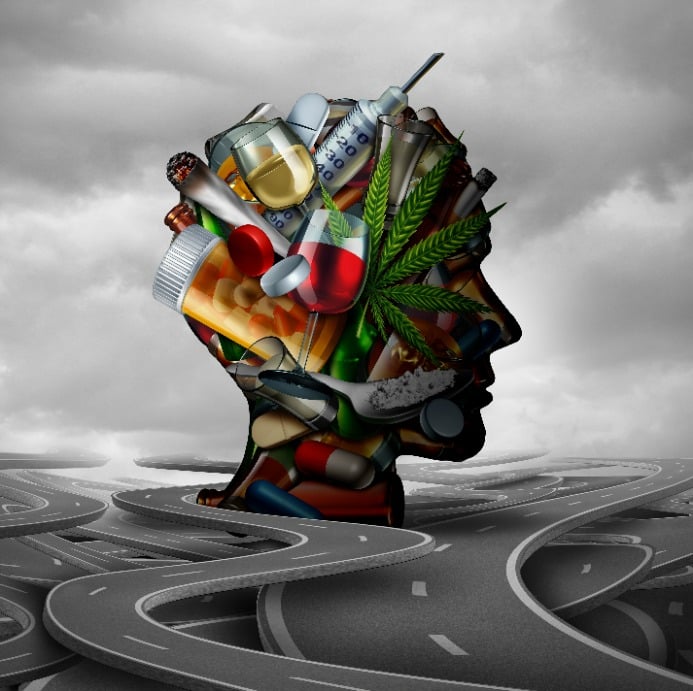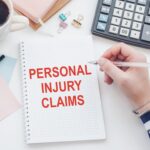Impaired Driving Prevention Month

How You Can Help Prevent Fatal Accidents
National Impaired Driving Prevention Month takes place annually during the month of December. The main purpose of this initiative is to help prevent thousands of lives being lost each year because drivers get behind the wheel while impaired by alcohol and/or drugs, sleep deprivation, and lack of focus.
According to the National Highway Traffic Safety Administration (NHTSA), 32 people die every day because of alcohol-impaired drivers. Further, the agency claims that 21% of Kansas and 27% of Missouri car accident fatalities were caused by alcohol-impaired driving in 2020.
At Patterson Legal Group, we share in the same hope that numerous government agencies and charitable organizations have that it is possible to lower the number of wrongful deaths, crashes, and other preventable injuries caused by impaired driving by increasing awareness. As such, take a few minutes to learn more about this topic and the countermeasures that have been developed to help prevent impaired driving from taking a toll on our roads.
How Does Impaired Driving Lead to Car Accidents?
Firstly, when you first hear or read about an impaired driving accident you may automatically think that alcohol or drugs are involved. However, by definition, impaired driving can also mean operating a motor vehicle while affected by sleepiness or distractions, such as text or using a cell phone while driving.
With that in mind, we’ll now discuss these three risky behaviors that can be linked to impaired driving accidents:
- Why Is ‘Driving Under the Influence’ Considered Unsafe?
- Why Is ‘Fatigued Driving’ Considered Unsafe?
- Why Is ‘Distracted Driving’ Considered Unsafe?
Why Is ‘Driving Under the Influence’ Considered Unsafe?
Alcohol and drugs affect the body and mind in numerous ways. Substances with depressant effects, such as alcohol and marijuana, slows brain function, motor skills, and reaction time. Stimulants such as cocaine and methamphetamine cause people to drive more aggressively and recklessly. Even prescription drugs may have side effects that can impair your ability to drive optimally.
Any substance that affects the way you drive, whether they act as a depressant or stimulant, is a potential danger to yourself, your passengers, and other drivers. There are times when you’ll have to make a split-second decision while driving and alcohol or drugs can affect your ability to make the safest decision.
Impaired driving is a real problem. Every injury and fatality caused by an impaired driver is preventable with smart decision making. The goal of National Impaired Driving Prevention month is to educate people on the effects of driving under the influence and what to do to prevent those situations from arising.
Learn What to Do to Avoid DUI Situations
Driving under the influence of alcohol or drugs can have serious consequences. In addition to the potential for causing property damage and serious injuries such as spine and brain injuries, you may face hefty fines, lose your drivers license, or face jail time. Be sure to familiarize yourself with DUI and DWI laws in Kansas and Missouri to learn the seriousness of these offenses.
If you plan to go out and know that you’ll be partaking in alcohol or drugs there are many things that you can do to keep yourself safe from impaired driving. They include:
- Having a sober friend serve as designated driver for the night
- Using public transportation
- Taking a taxi
- Taking a rideshare service like Lyft or Uber
- Asking your doctor if your medication can affect the way you drive, especially when combined with other substances
If you notice that a friend or family member is in no condition to drive then you should consider:
- Asking for their car keys so that they don’t drive off
- Ordering them a rideshare or taxi
- Letting them sleep in your guest room or on your couch
Some people drive impaired because they make poor decisions while drunk, while others do so because it’s selfishly convenient. Remember, driving is not a Constitutional right; it’s a privilege. Abusing the privilege by driving impaired could result in harming or killing another person, as well as criminal, legal, and financial punishment.
Don’t let a bad decision or self choice result in a DUI or DWI. It’s not worth the risk.
Why Is ‘Fatigued Driving’ Considered Unsafe?
The Centers for Disease Control and Prevention (CDC) claim that one out of three people do not get enough sleep. That lack of sleep leads to drowsy and fatigued drivers risking the safety of themselves and others on our roadways because of suboptimal reflexes, perception, and reaction time.
According to NHTSA, there are three factors most commonly associated with drowsy-driving crashes:
- Happen most frequently between midnight and 6:00 a.m., or in the late afternoon.
- Often involve only a single driver running off the road at a high rate of speed with no evidence of braking.
- Primarily occur on rural roads and highways.
How to Avoid Driving Drowsy
The most obvious way drivers can avoid driving drowsy is to not operate a vehicle while fatigued. Aside from that, here are a few more tips:
- Check the warning labels on any prescriptions for any notices to not operate machinery as taking them can result in drowsiness.
- Avoid drinking alcohol if you plan to drive.
- Avoid driving during the peak sleepiness periods, such as from midnight through 6:00 a.m. and late afternoon.
Why Is ‘Distracted Driving’ Considered Unsafe?
Nine people in the United States are killed every day in crashes that are reported to involve a distracted driver. 3,142 lives were lost just in 2020.
Playing games, using social media apps on a mobile phone, eating or drinking, reaching for something under a seat, arguing with passengers, or simply spacing out are all contributing factors to these avoidable distracted driving accidents. Furthermore, a percentage of people who died in crashes involving a distracted driver were outside a vehicle to include walkers and cyclists.
Actions Drivers Can Take to Avoid Distractions
Here are a few tips to help drivers avoid distractions while behind the wheel:
- Do not multitask while driving.
- Do not drive while stressed or overly emotional.
- Turn your phone off or put it into airplane mode while driving.
- Passengers provide navigational help and encourage drivers to stay focused.
- Remind teen drivers that if their hands are on the wheel their eyes must be on the road.
Contact Patterson Legal Group
The team at Patterson Legal Group hopes that you use Impaired Driving Prevention Month to learn how to avoid impaired-driving situations, reinforce what you already know, and teach your friends about this grave issue. By being responsible, smart, and prepared, we can eliminate deaths and injuries caused by impaired driving.
If you or a loved one have been harmed by an impaired driver, don’t hesitate to contact Patterson Legal Group. Our representatives are available to assist you 24/7, even on holidays and weekends. Our team of highly skilled legal professionals are committed to winning you the highest compensation possible and have thousands of extremely satisfied clients.
Give us a call today at 888-687-2400 or reach us through the internet using our secure online form or LiveChat features. Let us take care of all your legal needs so that you can focus on your health and recovery.
The information on this blog is for informational purposes only. It is not meant to serve as legal advice for an individual case or situation. This information is not intended to create an attorney-client relationship nor does viewing this material constitute an attorney-client relationship.





